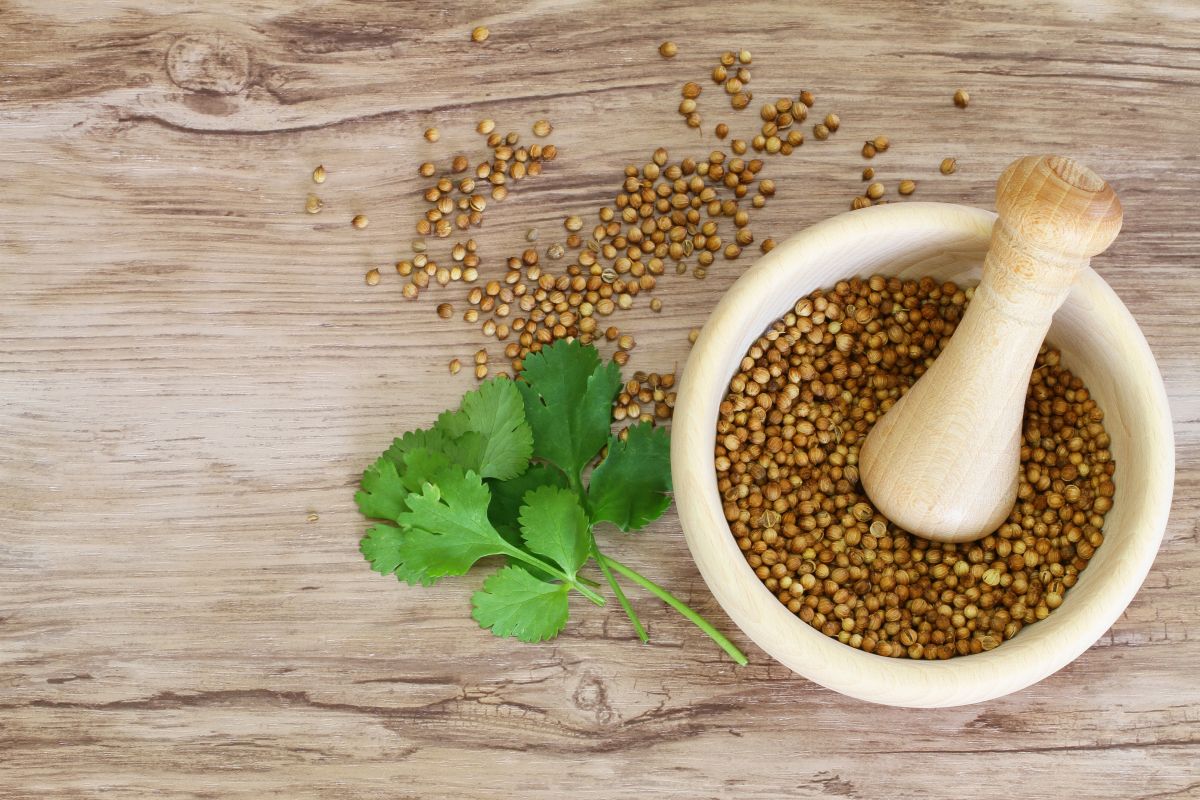Spices are the soul of Indian cooking. Whether it is a simple or special dish, the use of some type of spice imparts a unique flavour to the recipe it is added to. In addition, these spices are also used for health and medicinal purposes, help in digestion and provide many beauty aids. Coriander seed is one such spice that is used in most Indian dishes because of its flavourful, cooling and medicinal properties.
Made with dried seeds of cilantro plant, this fresh and light spice is often referred to as a miracle spice, thanks to its amazing health benefits.
Advertisement
· Treat stomach disorders: Coriander seeds are used to treat stomach disorders. They can soothe an upset stomach, treat indigestion and relieve intestinal gas. Coriander seeds also relieve constipation. They have been shown to increase bowel movements. The aromatic oil in coriander seeds is a digestive stimulant. The seeds contain a natural antibiotic that protects against food-borne illnesses too.
· Cure diarrhoea: Coriander seeds are full of limonene, cineol, beta-phelandrene and alpha-pinene. These components are known to have anti-bacterial properties and thus prevent diarrhoea which is caused by bacteria.
· Sweeten bad breath: Coriander seeds can be used as a mouthwash to sweeten bad breath.
· May lower blood sugar: These seeds are effective in controlling insulin release from pancreas. The ethanol present in the seeds is said to be effective in reducing serum glucose or blood sugar.
· Manage high blood pressure: This spice is packed with heart-friendly fibers. It is also very effective to modulate gut activity, which is very crucial to manage high blood pressure. The seeds also have a diuretic effect that helps increase passing of urine. Through urine, excess sodium accumulated in the system is eliminated. Soak a spoonful of coriander seeds in a glass of water overnight. Strain in morning and consume its water.
· Prevent various heart diseases: Coriander seeds reduce bad cholesterol without affecting good cholesterol. Leave one teaspoon of coriander seeds soaked in water overnight and consume the water the next day to improve heart health.
· Prevent arthritis and rheumatism: The compounds, linoleic acid and cineole in coriander seeds contain anti-arthritic and anti-rheumatic properties. Consuming coriander seed water can treat joint inflammation, pain and swelling. Soak a teaspoon full overnight in a glass of water. Strain and drink in the morning.
· Relieve menstrual cramps: Consuming coriander seed water can help ease abdominal cramps and pains during menses.
· Treat fungal infections: Coriander seeds contain antiseptic and anti-fungal properties. They are also rich in antioxidants. Therefore, they help detoxify and disinfect the body and cure skin conditions like eczema, dryness and other fungal infections.
· Cure smallpox: The antioxidant, antimicrobial, detoxifying and anti-infectious properties of coriander seeds boost immune system, reduce pain, itching, soothe other effects of smallpox. These seeds are abundant in vitamin c, so they have a high curative effect on smallpox.
· Rich source of iron: Being loaded with iron content, coriander seeds enhance strength, energy and also promote bone health. Therefore they are helpful in prevention and cure of iron-deficiency disease anemia.
Like most Indian spices, coriander seeds play well with other spices and food ingredients. Described by some as ‘nutty’ and ‘fruity’, coriander seeds are either used in whole seed form or ground into a powder to add unique flavour and medicinal value to your food. However, do not indulge in large doses as overuse sometimes could lead to allergic reactions which might put you further at greater health risks.
Coriander seeds are likely safe in food amounts and benign for most people when taken by mouth in appropriate medicinal amounts.









